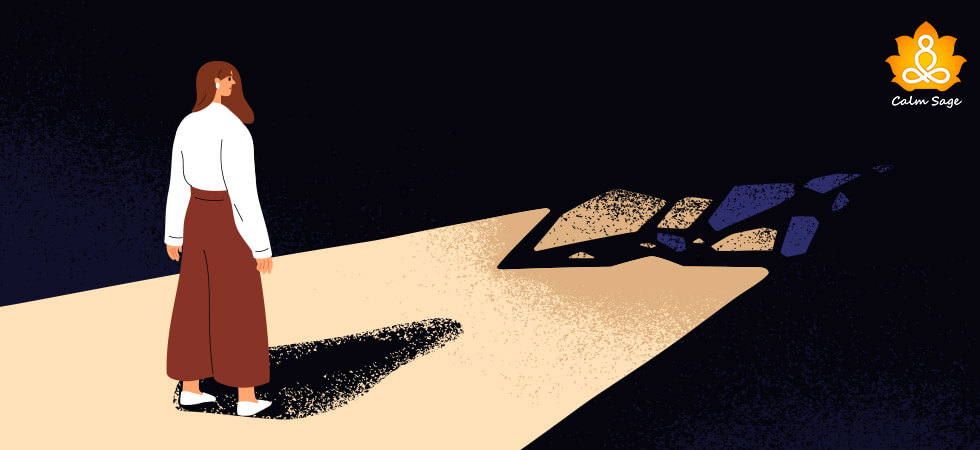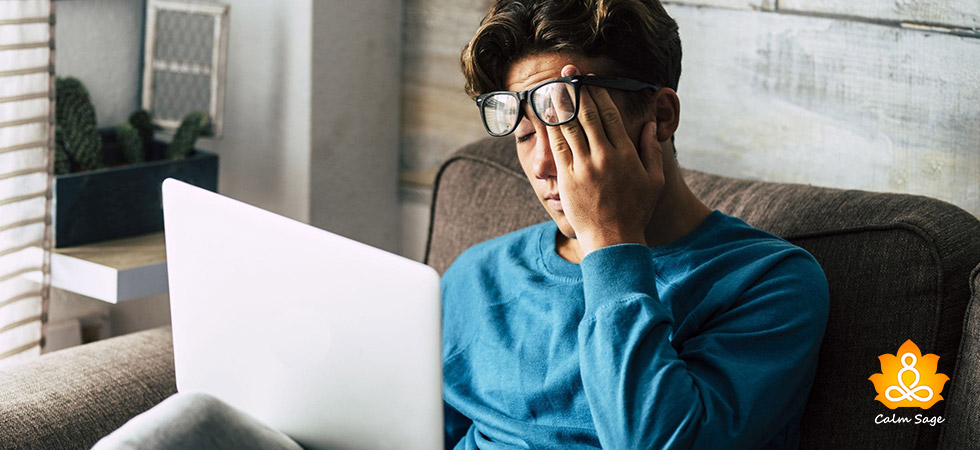Fear Of The Unknown: Why Do We Fear It And How To Cope

“Change is the only constant” so why is it that we fear to change? Or is it the fear of the unknown that intensifies our fear of change? Also known as metathesiophobia or fear of change, many of us are afraid of changing our circumstances largely because we fear what will happen if we change, hence the fear of the unknown.
Circumstances in life are bound to change – either for the better or for the worse – but change is inevitable. Even though humans are wired to change, why is it that we fear it?
If you’re scared of the unknown, then you might experience frequent anxiety, feel like you’re stuck in a situation, refuse to step out of your comfort zone, or frequently experience signs of panic.
Well, if you can relate to this situation, then keep reading to understand the causes of this phobia of the unknown, signs to keep in mind, and tips to help you cope with the fear of the unknown and by extension the fear of change.
Why Do We Fear The Unknown?
Whenever a situation is out of our control, it could trigger a fear of change. When we choose to change, for example, deciding to move to a new city or changing jobs, we feel in control because the change we’re implementing is our choice. However, when a change is forced upon us by external factors, it could make us feel powerless.
Being powerless can lead to the inability to accept the circumstances, followed by a strong refusal to change that’s born out of the uncertainty of the unknown.
This fear of the unknown can be traced back to ancestral times. From one point of view, our brains are wired to follow consistent patterns and routines. After all, routines can mean safety. From another perspective, it’s not that different either. Following consistent patterns means having a structure to life that keeps our mental health happy.
However, life is unpredictable and when faced with inconsistency and disruption to a routine that is supposed to be safe, we experience stress and anxiety. More often than not, this anxiety is caused because we don’t know what’s going to happen next.
Take away certainty, and you’re left with nothing but uncertainty about what you’ll face when you turn around the street.
Do You Have The Fear Of The Unknown?
While the fear of the unknown is common, having a phobia of the unknown can be different. The phobia of the unknown can bring physical, emotional, and mental symptoms that can upturn our lives. So how do you know if you have the fear of the unknown? Are there some signs you need to be aware of?
Take a look!
If you have the fear of the unknown, then you may;
- Feel unhappy in some circumstances yet find it unable to bring a positive change
- Feel the need to stay in an unhappy relationship
- Not want to change jobs or careers even if you’re miserable in your current one
- Have extreme anxiety when thinking about your future
- Have the inability to accept change or move out of your comfort zone
- Refuse to disrupt or change your daily routine
- Refuse to accept invitations to events and celebrations
- Frequently feel nauseous or have stomach issues when thinking about change
- Experience increased heart rate and rapid breathing when thinking about change
- Experience sweating, shaking, and trembling when thinking about change
Your fear of the unknown can also be related to;
- Fear of failure
- Fear of success, and
- Self-doubt
When Could This Fear Become Harmful?
Fear, just like feedback, can be constructive and destructive. If your fear is constructive, it will alert you to a real threat and protect you from danger, however, if your fear is destructive or harmful, it will keep you alert even if a threat is non-existent. You might feel that there’s a threat but in reality, there is nothing of the such.
Depending on the intensity of your fear, the fear of the unknown can become destructive or harmful. If your fear of the unknown is left unaddressed and untreated, then it could cause serious issues such as;
- Depression
- Anxiety
- Self-isolation
- Avoidance of others
- Chronic stress
- Risk of substance use disorder
- Risk of unhealthy relationships
- Risk of staying in toxic relationships
- Suicidal thoughts
- Self-harm
Tips To Cope With The Fear Of The Unknown
Here are some tips to help you cope with the fear of the unknown;
1. Journaling May Help
Journaling your thoughts may help you understand the cause of your fear and how you can change it. Journaling can also be non-judgmental, so you can unload your mind without mincing your words.
2. Meditation Is Also One Way
To focus on self-reflection, meditation can be of great help. This way, you can understand who or what you’re scared of and what you might need to get over the fear. It can also help you align your thoughts with your values and understand where to go from there.
3. Creating A Vision Board
If you’re scared of the unknown, then you can create a vision board of the future you’re envisioning. Add photographs, clippings, or other art to create a board of things you’d like to manifest in your future. This will prepare you for change.
4. Talk To Your Loved Ones
If you want then you can talk to your loved ones about your fears. You may be surprised to hear your loved ones share their fears and tips to cope with them. If not, then at least, it’ll help you express your thoughts and release some of the stress and anxiety attached to your fear.
5. Set Goals For The Future
Once you know where your fear of the unknown comes from, then you can set realistic goals to prepare yourself for what’s to come or what you want from your future. This will help you take the first steps toward a positive change in your life.
6. Avoid Avoiding Change
Now, if you begin avoiding change then it won’t help so instead of avoiding change, try to embrace it. Accept that unpredictability is a part of life so worrying about unnecessary things will only build stress and anxiety. Rather than thinking about the negatives, reframe your thinking to view the unknown as an opportunity to invite new possibilities.
When To Seek Professional Help?
When your fear of the unknown can make your daily life harder, causing disruptions in how you socialize, work, and maintain relationships, then it could be an indication that you might need professional interference. With the right therapy and relaxation techniques, you can learn to overcome the fear of the unknown.
Get 20% Off on Betterhelp Appointment
If your symptoms are severe, then a professional may also prescribe medications to help ease the symptoms. You can also search for holistic treatments if you would like to avoid medications.
The fear of the unknown is the greatest fear of all and if left unaddressed can cause you to feel stuck, unhappy, depressed, and anxious in life. With the right intervention, coping techniques, and professional support, it can be possible to overcome the phobia of the unknown and move forward in life with a positive mindset.
I hope this article will help you understand more about the fear of the unknown and how to cope with it. For more, you can write to us at info@calmsage.com or DM us on social media.
You can also share your thoughts with us in the comments below.
Take Care!




















